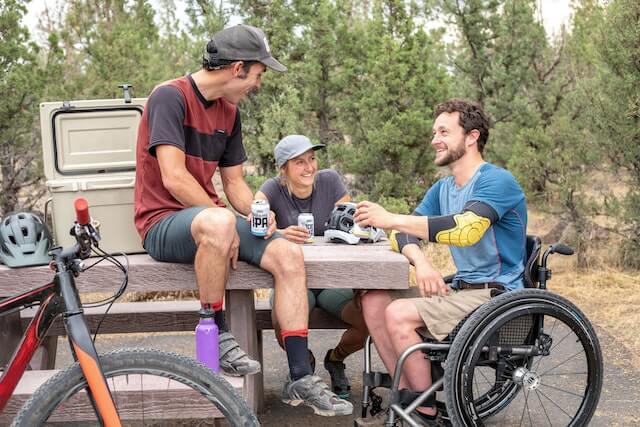Understanding the Holiday Triggers
The holiday season, while festive and joyful for many, can be a minefield of triggers for those in addiction recovery. Common triggers include stress from holiday preparations, feelings of loneliness, and social events where alcohol is present. It’s not just the presence of alcohol that can be challenging. Emotional triggers like family dynamics or memories of past holidays can also impact your journey to recovery. Understanding these triggers is the first step in preparing to face them.
At the same time, recognizing your triggers helps develop coping strategies tailored to your needs. It’s also beneficial to stay informed through reliable sources. For instance, the Substance Abuse and Mental Health Services Administration (SAMHSA) offers valuable insights and resources on managing triggers during recovery. By being aware of these holiday-specific challenges, you can better equip yourself to maintain sobriety and enjoy the season in a healthy, fulfilling way.
Strategies for Staying on Track
Navigating addiction recovery during the holidays involves strategic planning and a strong support network. Here’s a more detailed look at these strategies:
Planning Ahead
- Identify and Prepare for Triggers: Understanding what situations may challenge your recovery during the holidays is crucial. Recognize these triggers in advance and prepare coping strategies.
- Set Achievable Goals: Be realistic with your holiday plans. Avoid overcommitting yourself and focus on what’s manageable.
- Develop an Exit Strategy: Always have a plan to leave situations that may become overwhelming. That could be a simple excuse or a friend who understands your situation.
Building a Support Network
- Maintain Regular Contact: Continuously engage with supportive friends, family, or recovery groups. Regular contact helps you stay on track.
- Professional Support is Key: If the holidays become particularly challenging, don’t hesitate to seek additional support from a Binghamton NY rehab center, a counselor, or a therapist.
- Communicate Your Strategies: Let those in your support network understand your holiday plans and how they can help. That could involve explaining your triggers and what actions you might need to take to stay on track.
Healthy Coping Mechanisms
Adopting healthy coping mechanisms is a vital part of navigating addiction recovery, especially during the holidays. Let’s explore some ways to manage stress and maintain your recovery path.
Engaging in Self-Care
Self-care is a powerful tool in maintaining motivation and consistency in recovery. It involves taking time to relax, engaging in activities that bring you joy and calmness, and ensuring you’re physically and mentally well. That could mean setting aside time for hobbies, getting enough rest, or practicing mindfulness and relaxation techniques. Prioritizing self-care helps in building resilience against holiday stresses.
Creating New Traditions
The holidays are a perfect time to start new traditions that support your recovery journey. Instead of focusing on past holiday experiences that might be triggering, consider creating new memories. That can include planning alcohol-free events, volunteering, or even starting a holiday project. New traditions can bring joy and fulfillment, offering a fresh perspective on the holiday season.
Addiction Recovery During the Holidays: Navigating Social Situations
Navigating social situations during the holidays can be a significant challenge for those in addiction recovery. Here are practical strategies for handling these encounters and maintaining your sobriety.
Communicate Your Boundaries
Effective communication is essential. Share your commitment to sobriety with those close to you. Explain why it’s crucial to maintain an alcohol-free environment during gatherings. When your loved ones understand your perspective, they are more likely to respect your boundaries and offer support.
Have a Sober Buddy
Select someone you trust to be your sober buddy at social events. This person should be aware of your recovery journey and willing to help. They can serve as a buffer between you and situations involving alcohol, offering encouragement and ensuring you stay on track.
Plan Non-Alcoholic Activities
Take the initiative to suggest and organize activities not revolving around alcohol. Board games, hiking trips, movie nights, or volunteering together are excellent options. By steering the focus away from drinking, you create an environment that aligns with your recovery goals.
Practice Self-Care
Before attending social gatherings, engage in self-care routines that help manage stress and anxiety. That might include meditation, deep breathing exercises, or a relaxing bath. After the event, reflect on your achievements in maintaining sobriety and reward yourself with positive self-care practices. Self-care reinforces your commitment to recovery and keeps you mentally and emotionally strong.
Dealing with Setbacksheadline
Dealing with setbacks is an inevitable part of addiction recovery during the holidays. Here are some tips on handling setbacks with resilience:
- Understanding Setbacks: Acknowledge that setbacks can happen to anyone in recovery. They are not a sign of failure but a chance to learn and grow. It’s crucial to view setbacks as temporary bumps on the road.
- Seek Support: Don’t hesitate to contact your support network, whether friends, family, or a therapist. Sharing your feelings and experiences can provide emotional relief and valuable guidance.
- Adjust Your Strategy: Review your recovery plan and assess what led to the setback. Adjust your strategy accordingly. Maybe you need to avoid certain triggers or add new coping mechanisms.
- Practice Self-Compassion: Be kind to yourself. Recovery is a journey, and setbacks are part of it. Avoid self-blame and guilt. Instead, focus on moving forward and recommitting to your goals.
- Stay Patient and Persistent: Setbacks don’t define your recovery. Stay patient and persistent. Reaffirm your commitment to sobriety and keep moving forward.
Embrace a Sober and Joyful Holiday Season

As you navigate addiction recovery during the holidays, remember that it’s a journey filled with challenges and triumphs. You can enjoy a sober and fulfilling holiday season by setting clear boundaries, seeking support, and practicing self-compassion. And even if setbacks may occur, they are opportunities for growth, not roadblocks. Stay focused, stay connected, and stay committed to your recovery goals. With resilience and determination, you can make this holiday season a joyful celebration of your sobriety.















